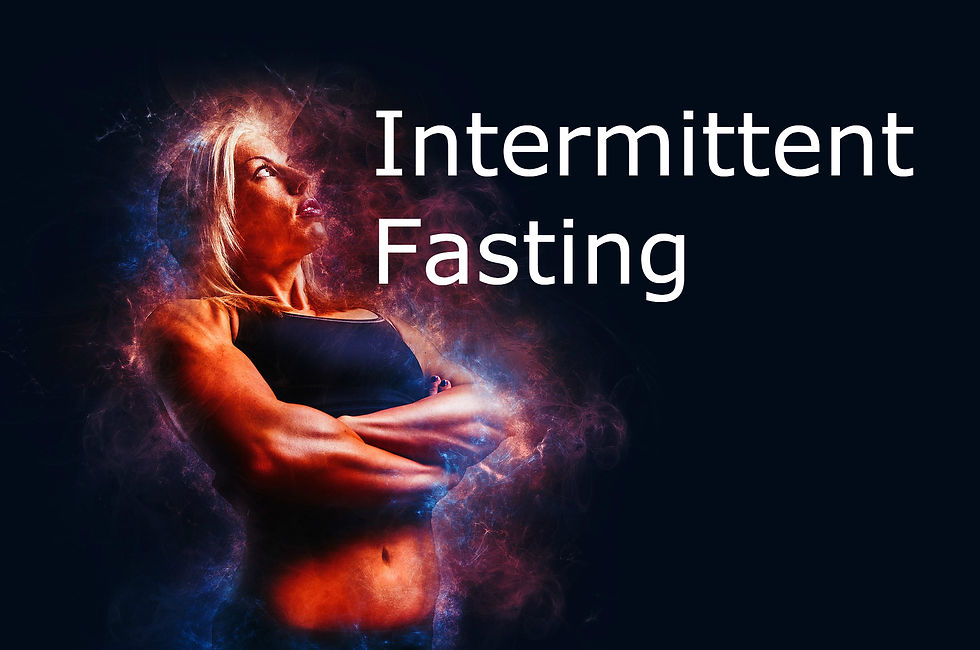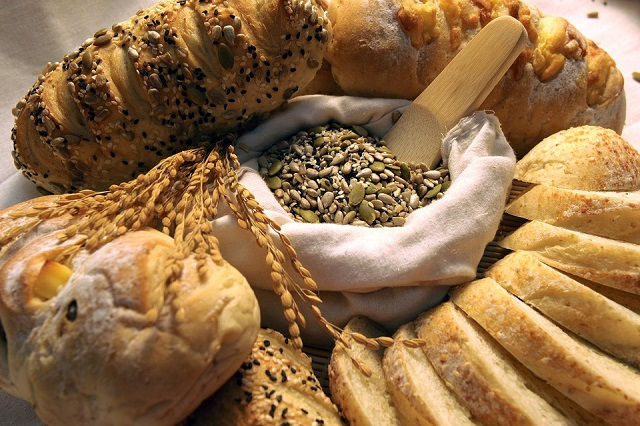Intermittent Fasting: What are the benefits?
- George Kefalas

- Mar 24, 2018
- 3 min read
Updated: Mar 26, 2018
Intermittent Fasting is a protocol through which you simply restrict your eating window and you increase the period of time you don't eat. There are many variations to this protocol regarding the time management, but the most popular is the 16-8, in which you don't consume calories for 16 hours and then you can eat freely for the rest 8 hours of the day.

The philosophy behind this lifestyle is to enable your body to reach up to the fat cells and get energy from there. Typically this is something that our body doesn't want to do because fat stores are for emergency purposes only. That is why intermittent fasting is amazing for burning fat.
But how is this possible?
Our body uses 3 types of sources in order to get its energy, with the exact following subsequence: 1) glycogen/blood sugar (carbs), 2) fat and 3) protein (muscles). When we have glycogen in our body it takes up to 6-8 hours for those stores to be metabolised. After that period of time, if you don't consume any calories, your body will turn to fat cells to get the required energy to survive. In order for your body to start burning muscles as a source of energy you have be in the starvation mode which occurs only after 72-96 hours without eating. So don't worry about burning muscles this ain't gonna happen.
Intermittent Fasting Benefits:
Increases longevity (30-80% according to animal experiments)
May reduce risk of cancer
Decreases type-2 diabetes, cholesterol and blood pressure according to International Journal of Obesity
May help prevent Alzheimer's disease
Increases Growth hormone according to American College of Cardiology (+ 1,200% in women and 2,000% in men)
Increases brain function, since fat is better fuel for brain than glucose
Fat burning ability
Decreases inflammation
Cleanses and detoxes the body through autophagy process
All those benefits look amazing considering that you don't have to follow any strict diet - all you have to do is stop consuming any calories for at least 16 hours a day and then consume what you would normally do for the rest of the day. The easiest way to achieve this, is by skipping breakfast and going straight for launch. Remember to keep yourself hydrated during the fasting period by drinking a lot of water. You can also drink black coffee, tea (without: sugar, milk or honey) or any drink with no calories in order to suppress your appetite, something that is a byproduct of caffeine.
Personally, i have been implementing intermittent fasting (16-8) for 1 year now and i am more than excited with the results. Whenever i have the chance, i prefer working out fasted for more severe fat loss and i have managed to gain lean muscle mass too. I haven't restricted my calories at all and i always try to hit my macronutrient target, especially my protein. Also, i have experienced that i wake up feeling more energetic, i can focus better on my tasks and be more productive in the morning.
To conclude, intermittent fasting is definitely a worthwhile lifestyle, more like a life hack, that you need to try and see for yourself. The first week is the hardest, but after that your body will adjust and you won't feel so much hungry. The key is to be consistent; if you manage that there is no doubt you will experience fat loss and feel much healthier.
Sources:
1. https://www.ncbi.nlm.nih.gov/pmc/articles/PMC3106288/ (autophagy)
2. https://www.ncbi.nlm.nih.gov/pubmed/3245934 (cancer)
3. https://www.ncbi.nlm.nih.gov/pubmed/11220789 (brain)
4. https://www.ncbi.nlm.nih.gov/pubmed/17306982 ( Alzheimer )
5. https://academic.oup.com/geronj/article-abstract/38/1/36/570019 (longevity)
6. https://www.ncbi.nlm.nih.gov/pubmed/23244540 (inflammation)
7. https://www.ncbi.nlm.nih.gov/pmc/articles/PMC329619/ (Growth hormone)
8. https://www.sciencedirect.com/science/article/pii/S193152441400200X (Diabetes)







Comments